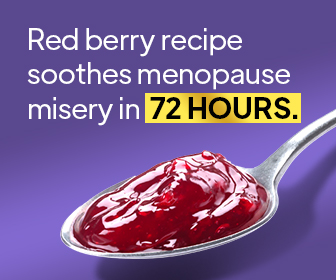Menopause marks the end of a woman’s reproductive years and is characterized by a decline in ovarian function and a decrease in estrogen and progesterone production. This hormonal shift can lead to a variety of symptoms, including hot flashes, night sweats, mood swings, and sleep disturbances. However, regular exercise has been shown to help alleviate many of these symptoms and provide a host of other health benefits.
Why Exercise is Important for Women in Menopause
- Reduces hot flashes: Hot flashes are a common symptom of menopause, affecting up to 85% of women. Exercise has been shown to reduce the frequency and severity of hot flashes, possibly by improving the function of the body’s temperature-regulating mechanisms.
- Improves sleep quality: Sleep disturbances are common during menopause and can lead to fatigue and mood changes. Exercise has been shown to improve sleep quality in menopausal women, likely due to its ability to reduce stress and anxiety.
- Helps with weight management: Weight gain is a common complaint of menopausal women, but regular exercise can help prevent weight gain and promote weight loss. Exercise helps burn calories and builds lean muscle mass, which can boost metabolism and improve body composition.
- Strengthens bones: Menopausal women are at an increased risk of osteoporosis, a condition in which bones become weak and fragile. Exercise, particularly weight-bearing exercises like walking, running, and strength training, can help build bone density and reduce the risk of fractures.
- Improves mood: Mood changes are common during menopause, with many women experiencing symptoms of anxiety and depression. Exercise has been shown to improve mood and reduce symptoms of anxiety and depression in menopausal women.
Scientific Evidence Supporting Exercise for Menopause
Multiple studies have shown that exercise can improve menopausal symptoms in women. One randomized controlled trial found that regular exercise reduced the frequency and severity of hot flashes in menopausal women. Another study showed that exercise improved sleep quality in postmenopausal women.
Exercise has also been shown to be effective in managing weight during menopause. One study found that women who engaged in regular exercise had less weight gain and improved body composition compared to sedentary women.
Furthermore, exercise has been shown to be effective in improving bone health during menopause. Weight-bearing exercises like walking and running have been shown to increase bone density and reduce the risk of osteoporosis.

Lastly, exercise has been shown to improve mood in menopausal women. One study found that exercise reduced symptoms of depression and anxiety in postmenopausal women.
How Much Exercise is Needed?

The American College of Obstetricians and Gynecologists recommends that menopausal women engage in at least 150 minutes of moderate-intensity aerobic exercise per week. This can include activities like brisk walking, cycling, swimming, or dancing. Strength training exercises should also be included at least twice a week to help build and maintain muscle mass.
In summary, exercise is crucial for women in menopause. It can help alleviate many of the symptoms associated with menopause, including hot flashes, sleep disturbances, and mood changes. Exercise also has numerous other health benefits, including weight management, bone health, and improved mood. Women should aim to engage in at least 150 minutes of moderate-intensity aerobic exercise per week, as well as regular strength training exercises.








